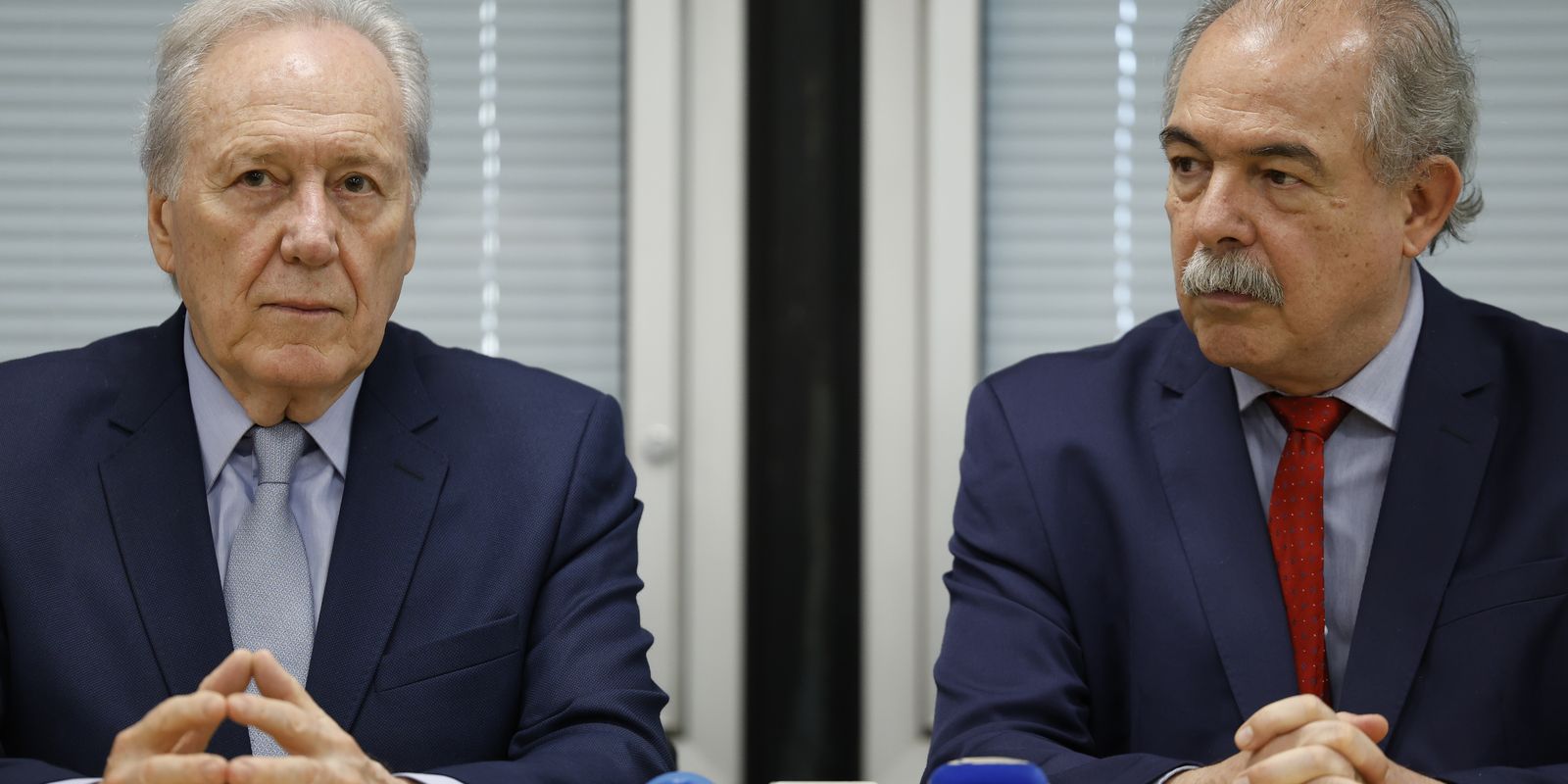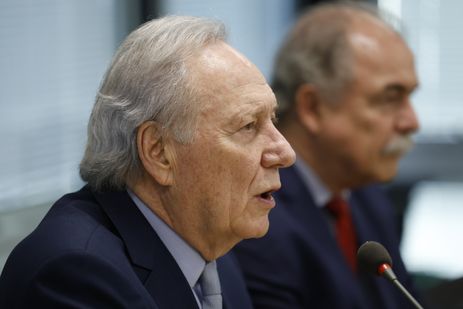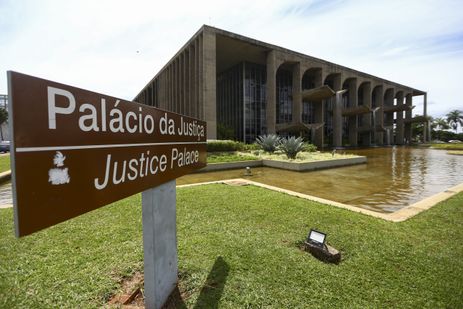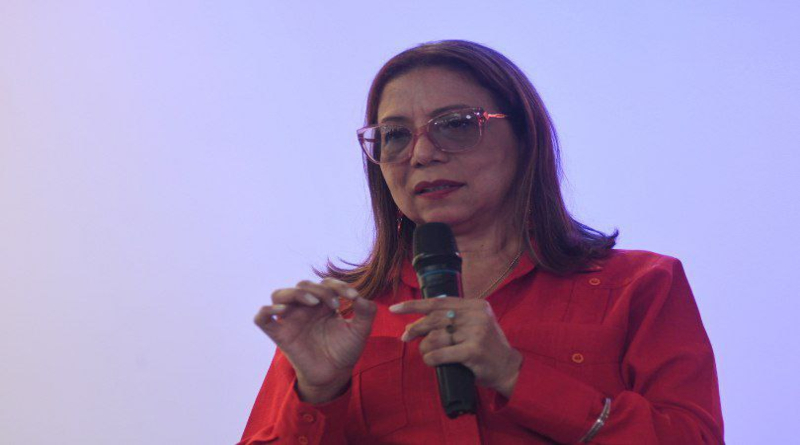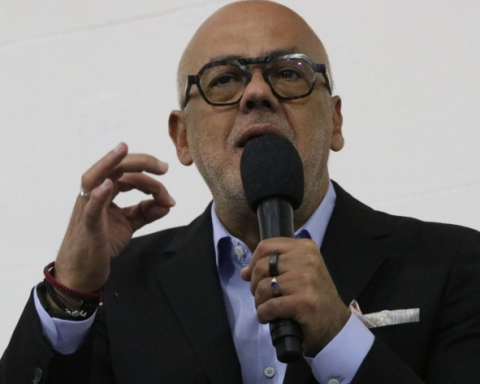The Ministry of Justice and Public Security (MJSP) and the National Bank for Economic and Social Development (BNDES) have been developing a series of partnerships with the aim of securing resources for initiatives to combat crime in the country. In one of the initiatives already underway, R$318 million were allocated to the Amazon Plan: Security and Sovereignty (Amas). Negotiations are underway for other projects that also involve the use of financing funds.
Details of the partnerships were released this Friday (16) by the Minister of Justice and Public Security, Ricardo Lewandowski, and by the president of BNDES, Aloizio Mercadante. Both highlighted that the projects under discussion are in line with the role of the financial institution.
“We are very committed to developing initiatives to strengthen public safety in Brazil. It is not exactly a tradition of the institution, but BNDES has to be open to challenges. And public safety has a direct relationship with economic efficiency and the Cost of Brazil. So we need to find other sources of funding, in addition to the public budget, which currently has significant fiscal restrictions,” said Mercadante.
According to Lewandowski, it makes sense for a development bank to be attentive to the country’s public safety. “We have been holding meetings with businesspeople and other segments of civil society. Economic stability depends a lot on public safety, foreign investment depends on public safety,” he said.
He highlighted that the actions in the Amazon, foreseen in the AMAS, are already underway. “It is a very important project that is already underway and aims to defend the region in a systemic way, involving the nine states that make up the Legal Amazon and the nine neighboring countries. It involves the fight against crime, illegal deforestation, human and drug trafficking, and illegal mining,” he said.
The R$318 million were allocated by the Amazon Fund, which has existed since 2008 and is managed by BNDES. The financial institution raises funds with national and international donors. According to Lewandowski, the expectation is that new contributions will be made in the future, reaching the amount of R$1 billion.
Renovation of the Palace of Justice
Another issue that has been discussed involves the regularization of land ownership in indigenous areas and areas occupied by quilombolas. The dispute over land in these areas is often related to episodes of violence. According to the minister, according to the legal system, regularization requires resources to compensate occupants who are acting in good faith and who have occasionally made improvements to the areas.
There is also a forecast of a contribution from BNDES to support the restoration of the Palace of Justice, the headquarters of the MJSP located on the Esplanada dos Ministérios, in Brasília. The works are expected to begin next week. The support from the financial institution is expected to be provided in 2025, in order to contribute to the completion of the works.
“With the restoration, we will also create a museum. It will be a memory center, because we have a very rich collection of documents, books, furniture, and historical artifacts. We want to make it available to the population and citizens who visit Brasília,” explained Lewandowski.
Mercadante highlighted that BNDES has been responsible for financing a large part of the restoration of Brazil’s historical heritage. “It is the institution most committed to heritage and the Palace of Justice is one of Brasília’s landmarks. We want to participate in this process.”
Funds
The president of BNDES stated that the creation of financing lines and the use of investment funds to support public safety measures are being evaluated. There is an advanced discussion on granting credit to states with the aim of implementing projects to restructure the prison system. “How do you modernize and ensure improvements to the prison system, which is often contaminated by organized crime? As the saying goes, the units are often a university for crime and are far from rehabilitating prisoners,” says Mercadante.
He also highlighted the recent approval of the creation of the Social Infrastructure Investment Fund (FIIS) by the National Congress. Its resources will come from various sources, such as budgetary allocations, loans from national and international financial institutions and agreements with the public administration. “They should be used for health, education and security. So these public security initiatives can be met with this new fund,” said Mercadante. The FIIS will be administered by a management committee coordinated by the Ministry of the Civil House and will have BNDES as its financial agent.
The financial institution is also preparing a proposal to create another fund, specifically aimed at supporting public safety. According to Mercadante, the idea does not involve the creation of new taxes and is based on voluntary forms of collection.
“It’s not something simple, neither from a legislative nor a technical point of view. But it’s possible, in our understanding. It would be a fund supplied by alternative sources, such as corporate donations, for example. It would help combat cargo theft, which increases companies’ costs. The same goes for the issue of counterfeit fuel. Today, there is a network of gas stations that are controlled by organized crime to launder money. If we have more resources available, we will provide more efficient responses,” he explained.
The president of BNDES also announced that a seminar is scheduled to be held in early October to discuss issues related to democracy and legal certainty, also covering public safety. The organization of the event is being discussed with the Federal Supreme Court (STF), the Attorney General’s Office (PGR), the Attorney General’s Office (AGU) and other agencies. According to Mercadante, one of the issues that should be discussed involves the campaign that is being led by the MJSP for the approval of a new constitutional framework capable of structuring a Unified Public Safety System.
“This is a historical intention of the 1988 Constitution, but it needs to be materialized in new attitudes in search of a more efficient republican relationship between the federated entities to combat crime,” he stated. The MJSP intends to present a Proposed Amendment to the Constitution (PEC), so that public security is managed in a similar way to what occurs with health through the Unified Health System (SUS), with greater integration between national and state structures, including standardizing procedures and documents.
Medal
The statements were made after a ceremony to present the Order of Merit of the MJSP to journalist Janio de Freitas, with the title of Commander. The honor is given to individuals and institutions that have rendered important services to the areas of Justice and Public Security in the country. The distinction to Janio de Freitas was proposed by the former minister of the MJSP and current minister of the Federal Supreme Court (STF), Flávio Dino. The decree was signed by Vice President Geraldo Alckmin in September of last year.
The ceremony took place at the BNDES headquarters in Rio de Janeiro. Jânio de Freitas, who is 92 years old, was not present. He was represented by his granddaughter, lawyer Paula Kaplan de Freitas, who said that his attendance had to be canceled at the last minute because he was not feeling well. “My grandfather said he was very happy and honored to receive this medal. And as his granddaughter, I can say that I am very proud,” she said.
Lewandowski and Mercadante highlighted the importance of Jânio de Freitas not only for journalism but also for the defense of democratic values. “He always took a very transparent and firm stance in defense of the values of national sovereignty. He left his mark on the history of journalism with his independence and commitment to democracy and civilizing values,” said the president of BNDES.
A multi-award winning journalist, Jânio de Freitas has worked in the newsrooms of several media outlets, such as Headline Magazine, Morning Mail, Breaking News and Sports Journal. Between 1983 and 2022, he wrote a regular political column for S. Paulo Newspaperof which he was also a member of the editorial board. He currently writes weekly for the portal Poder360. On TV, he was part of teams for different talk shows on Bandeirantes Network and in the extinct Headline TV.
Throughout his career, he has produced notable reports based on the investigation of crimes in public administration. In 1987, his investigation into a bidding fraud involving the construction of the North-South railway won him the Esso Journalism Award, considered the most important in the national media during its existence, between 1955 and 2015.
